Best price on the market
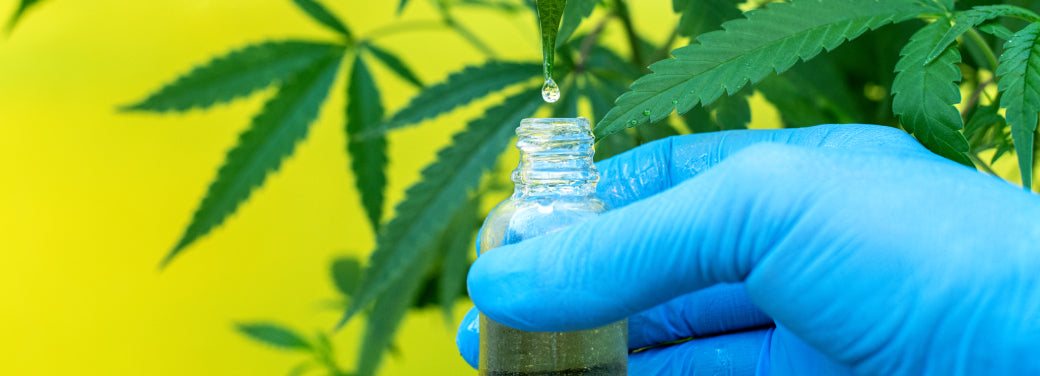
Benefits of cbd and how to use it
In recent years, the world has witnessed a revolution in health and wellness, centered around a fascinating compound: CBD. But what exactly is CBD and what are its benefits? Cannabidiol, or CBD, is one of the numerous compounds found in the cannabis plant, distinguished by its notable therapeutic properties. Unlike THC, another known component of cannabis, CBD does not produce psychoactive effects, which has contributed significantly to its legalization and popularization in various countries.
The conversation around what CBD is and its benefits has captured the attention of scientists, health professionals and consumers alike, fueled by a growing body of research and personal testimonials pointing to its potential to improve quality of life. From stress and anxiety reduction to sleep improvement and pain relief, the spectrum of CBD benefits and properties is as broad as it is promising. As we explore this fascinating topic, we'll dive into the details of what CBD is, its many benefits, and important considerations to keep in mind when using it.
CBD benefits include pain relief, reduced anxiety and inflammation, improved sleep, and neuroprotection. It can be used in the form of oils, creams, capsules or vaping, depending on individual needs and administration preferences.
What is CBD and what benefits does it have?
CBD, or cannabidiol, is one of more than one hundred chemical compounds known as cannabinoids found in the cannabis plant. Unlike its better-known relative, THC (tetrahydrocannabinol), CBD is non-psychoactive, meaning it does not produce the “high” associated with cannabis. This distinction is crucial and has been a determining factor in the growing acceptance and legalization of CBD in various parts of the world.
The main source of CBD is the hemp plant, a variety of cannabis that contains trace amounts of THC. While THC is known for its euphoric effects and is the main psychoactive component of cannabis, CBD interacts with the body's endocannabinoid system in a way that can produce therapeutic effects without altering consciousness.
The endocannabinoid system is a complex system of neurotransmitters and receptors present throughout the body, which plays a key role in regulating various functions such as sleep, appetite, pain and immune response. CBD can influence this system, which explains its potential in a wide range of health and wellness applications.
Given its non-psychoactive nature, CBD has become an attractive option for those seeking relief from various conditions without the mind-altering effects of THC. Its versatility in application forms (such as oils, capsules, topicals, edibles, among others) adds to its popularity, allowing users to choose the form that best suits their needs and lifestyle.
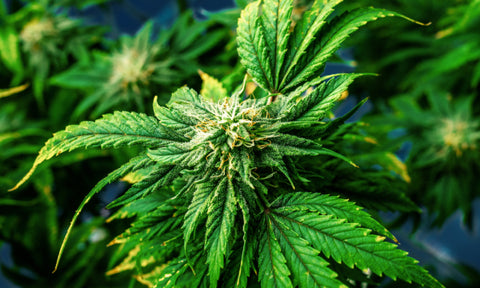
Benefits of CBD
CBD has gained popularity due to its wide range of potential health and wellness benefits. Below are some of the most significant:
- Pain Relief : One of the most recognized uses of CBD is its ability to relieve pain. It is believed to act on the receptors of the endocannabinoid system to reduce inflammation and pain perception.
- Reducing Anxiety and Depression : CBD has shown promise in the treatment of anxiety and depression disorders, helping to regulate mood and promote a calmer, more relaxed state of mind.
- Improved Sleep : Many people use CBD to improve the quality of their sleep, as it can help reduce anxiety and pain, factors that often contribute to sleep difficulties.
- Neuroprotective Properties : There is research suggesting that CBD could benefit those with neurodegenerative diseases, thanks to its effects on brain receptors and its antioxidant potential.
- Relief of Cancer-Related Symptoms : Some studies have indicated that CBD may help relieve symptoms associated with cancer treatment, such as pain and nausea.
- Skin Benefits : Topical use of CBD can benefit skin health, helping to treat conditions such as acne, psoriasis and eczema, due to its anti-inflammatory properties and ability to reduce sebum production.
- Potential in Addiction Treatment : Preliminary research suggests that CBD could help people with addiction by modifying circuits in the brain related to substance dependence.
- Anti-inflammatory Effects : CBD is known for its anti-inflammatory properties, making it useful in the treatment of several chronic inflammatory conditions.
- Support Cardiovascular Health : Some studies suggest that CBD may benefit heart health, potentially lowering blood pressure and protecting against heart-related diseases.
- Reduction of Symptoms of Neurological Disorders : There is evidence indicating that CBD can help in the treatment of complications associated with neurological disorders such as epilepsy and multiple sclerosis.
CBD Use Formats
CBD can be consumed in several ways, each with its own characteristics and advantages. Some of the most common formats include:
- CBD oil : It is one of the most popular formats. The oil is obtained by extracting CBD from the cannabis plant and then diluting it with a carrier oil, such as coconut or hemp seed oil. It is known for its ease of use and precise dosage. Marijuana oil benefits and contraindications include its potential to relieve pain, reduce anxiety and improve sleep. However, contraindications may include interactions with other medications and side effects such as fatigue and changes in appetite.
- CBD Capsules : They offer a convenient and discreet way to consume CBD, with the advantage of pre-measured doses. They are ideal for those who want to avoid the taste of CBD oil.
- CBD Topicals : These include CBD-infused creams, balms, and lotions. They are applied directly to the skin and are popular for treating local pain, inflammation and skin problems.
- CBD Edibles : CBD-infused gummies, chocolates, and other sweets offer a tasty and fun way to consume CBD. Although their effect may take longer to be felt, edibles provide a prolonged release of CBD in the body.
- CBD Vaping : CBD vapor inhalation provides rapid absorption and is preferred by those seeking immediate relief. However, there are concerns about the safety of vaping and the potential effects on the lungs.
- CBD tinctures : These are liquids that can be applied under the tongue with a dropper. They offer rapid absorption and easily adjustable dosage.
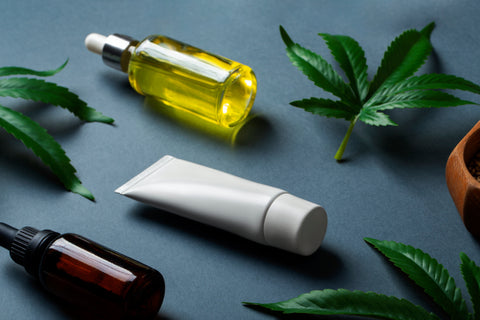
How to Use CBD
The safe and effective use of CBD depends on several factors, including the reason for use, the method of administration, and the dosage. Here are some tips to use CBD optimally:
- Determine the Purpose : Before you start using CBD, it is important to identify what you want to use it for. This may include pain relief, anxiety management, sleep improvement, among others. Understanding the purpose will help you choose the most suitable format and the correct dosage.
- Choosing the Right Format : CBD is available in various forms such as oils, capsules, topicals, edibles, and more. The choice depends on personal preference and how quickly you want the CBD to work. For example, oils and tinctures offer faster absorption than edibles.
- Start with Low Doses : Starting with a low dose allows the body to adapt to the CBD. The dose can be increased gradually until the desired effect is achieved. This also reduces the risk of possible side effects.
- Consult with a Health Professional : It is crucial to speak with a doctor before using CBD, especially if you have pre-existing medical conditions or are taking other medications.
- Monitor Effects : Taking note of how the body reacts to CBD can help adjust the dosage or format if necessary. Any significant changes in well-being after using CBD should be discussed with a doctor.
- Check Product Quality : Opt for high-quality CBD products from reliable sources. Look for products that provide independent laboratory testing that verifies their purity and concentration.
- Be Aware of Legality : Make sure that the use of CBD products is legal in the region where you reside.
CBD Contraindications and Precautions
Although CBD is generally well tolerated and considered safe, it is important to be aware of possible contraindications and take precautions when using it. Here are some key considerations:
- Drug Interactions : CBD may interact with certain medications, such as blood thinners and those that carry a "do not consume with grapefruit" warning. It is essential to consult with a doctor before starting to use CBD, especially if you are taking other medications.
- Potential Side Effects : Although rare, some users may experience side effects such as dry mouth, fatigue, diarrhea, changes in appetite or weight, and, in some cases, liver damage. Vigilance is key, and medical attention should be sought if these symptoms occur.
- Use During Pregnancy and Breastfeeding : CBD use during pregnancy and breast-feeding is not recommended, as there is limited evidence on how it may affect the fetus or baby.
- Product Quality and Purity : Given the lack of regulation in many markets, it is essential to choose high-quality CBD products from reliable suppliers. Look for products that have been tested in independent laboratories to ensure purity and concentration.
- Dosage and Administration : Starting with a low dose and gradually increasing until the effective dose is found is a recommended practice. Avoiding unnecessary high doses reduces the risk of possible side effects.
- Legal Considerations : The legal status of CBD varies from place to place. It is important to be informed about local laws before purchasing and using CBD products.
- Regular Medical Visits : Maintaining open communication with a healthcare professional can help monitor any unexpected changes or interactions and ensure safe and effective use of CBD.
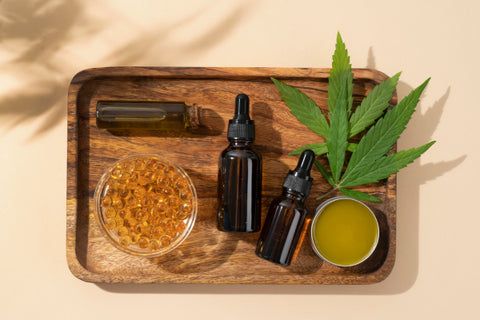
How to Choose CBD Products
Choosing the right CBD product is crucial to ensure its effectiveness and safety. Here are some guidelines for selecting high-quality CBD products:
- Research the Manufacturer : Look for companies with a good reputation in the CBD industry. Reliable companies often provide detailed information about their extraction and manufacturing processes.
- Verify Certificates of Analysis (COA) : A COA is a document provided by an independent laboratory that confirms the composition of the product. Make sure the product contains the amount of CBD it claims and that it is free of contaminants such as pesticides, heavy metals, and mold.
- Type of CBD Extract : There are three main types: CBD isolate (pure CBD), full spectrum (contains all the cannabinoids and terpenes of the plant), and broad spectrum (similar to full spectrum, but without THC). The choice will depend on personal needs and preferences.
- Extraction Method : CO2 or ethanol extraction methods are often preferable because they are cleaner and less likely to leave hazardous residues.
- Origin of Hemp : Prefer products derived from organically grown hemp to minimize exposure to pesticides and other harmful chemicals.
- Transparency and Labeling : A good label should include information on the amount of CBD per dose, ingredients, and suggestions for use.
- User Opinions and Experiences : Reading reviews and testimonials from other users can provide valuable information about the effectiveness and quality of a product.
- Consult with Health Professionals : Before starting to use any CBD product, it is important to consult with a doctor or health professional. They can offer specific guidance based on individual health and any existing medical conditions.
Marijuana oil benefits and contraindications
CBD oil offers potential benefits such as pain relief, anxiety reduction, sleep improvement, and seizure control, without psychoactive effects. However, some people may experience mild side effects such as fatigue or changes in appetite. Contraindications may include interactions with certain medications and adverse effects in people sensitive to CBD. It is important to talk to a health professional before starting to use it.
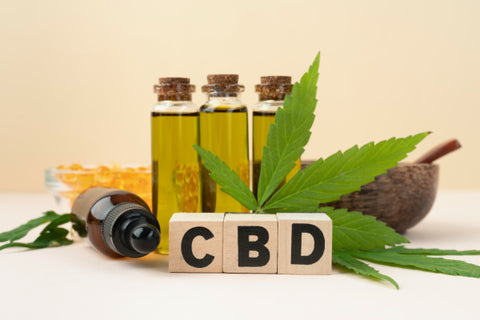
Benefits of CBD oil
- Pain Relief : CBD oil has been shown to have analgesic properties, helping to relieve chronic pain, arthritis, and other types of pain.
- Anxiety and stress reduction : CBD has been found to have anti-anxiety effects, which may help reduce anxiety and stress in some people.
- Improved sleep : Many CBD oil users report an improvement in sleep quality, finding it easier to fall asleep and sleeping better through the night.
- Neuroprotective properties : CBD can protect brain cells from damage and degeneration, which may be beneficial for neurodegenerative diseases such as Alzheimer's and Parkinson's.
- Seizure reduction : CBD oil has been shown to be effective in reducing the frequency and severity of seizures in patients with certain types of refractory epilepsy.
Contraindications of CBD oil
- Drug interactions : CBD can interact with certain medications, so it is important to talk to a doctor before using it if you are taking other medications.
- Side effects : Although rare, some side effects of CBD oil may include drowsiness, fatigue, changes in appetite, and diarrhea.
- Product quality : The quality and purity of CBD oil can vary, so it is important to purchase high-quality products from trusted manufacturers.
- Legality : The legality of CBD can vary by country and state, so make sure you know your local laws before using it.
It is important to note that the effects of CBD oil can vary from person to person, and it is advisable to speak with a healthcare professional before starting to use it, especially if you have specific medical concerns or are taking other medications.
